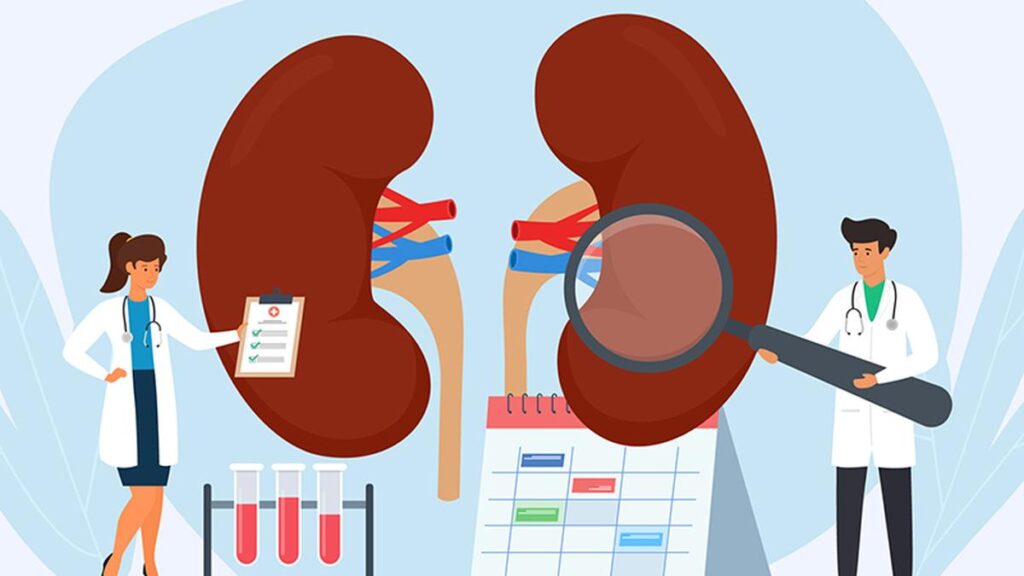
Photograph used for representational purposes only
| Photo Credit: Getty Images
Chronic Kidney Disease (CKD), as per Kidney Disease Improving Global Outcomes (KDIGO) is defined as estimated glomerular filtration rate (eGFR) < 60 mL/min/1.73 m2 for at least three months, or the presence of markers of kidney damage (urinary abnormalities, structural abnormalities).
The prevalence of kidney disease in our country varies from 3 to 10 % based on various studies, underlying the importance of developing a national registry. The incidence of kidney disease is also on the rise with over 1,00,000 new patients requiring renal replacement therapy (dialysis/renal transplantation) annually.
Causes of kidney disease
Various ailments contributing to kidney disease include diabetes mellitus, hypertension, obesity, medicines causing kidney injury, inflammation of the kidney, urological causes and other diseases of the body affecting the kidney.
Paracetemol, diclofinac and tramadol are al, different group of pain killers available in the market. Of all the drugs (medications) causing kidney damage, pain killers, primarily NSAIDs (non-steroidal anti-inflammatory drugs), are most commonly associated with kidney failure. Consuming any of the above medications in excess quantities can have adverse effects. Paracetamol causes liver injury, NSAIDs cause kidney injury and gastritis, and tramadol is addictive.

Various NSAIDs available in the market are diclofinac, aceclofinac, ibuprofen, ketorolac, and celecoxib. Drugs like nimesulide, also NSAIDs, have been banned by the government but are still widely available in the market. These are mainly used for pain which is associated with inflammation, like tooth pain with swelling, and joint pain, particularly in people with arthritis. NSAIDs are very potent in controlling pain and inflammation.
How painkillers affect the kidneys
There are many ways painkillers affect the kidneys. NSAIDs control pain by lowering prostaglandins, which are essential for blood flow to the kidneys. Thus, when the blood flow to the kidney is affected, it can result in damage to the kidney tubules, which in turn results in increased serum creatinine levels. Other mechanisms which cause renal injury are those which initiate inflammation in the interstitium causing interstitial nephritis and excessive protein leakage in the urine causing swelling of the body, called minimal change nephropathy.
Unfortunately, NSAIDs are not the only nephrotoxic drugs consumed. Other drugs include various antibiotics like amikacin and streptomycin which are used for treating infections, diuretics like furosemide used in cardiac failure, antihypertensives (when causing low BP), and proton pump inhibitors like pantoprazole and omeprazole. When NSAIDs are used along with these medications, the toxic effect on the kidney increases significantly.
People with already affected kidneys, the elderly and the paediatric age group, and people with other debilitating illnesses are prone to kidney failure with nephrotoxic drugs like NSAIDs. Another class of people affected by these drugs are the those with dehydration. Dehydration increases the nephrotoxicity of NSAIDs manyfold and might even cause kidney failure requiring dialysis.

How to manage pain and inflammation?
NSAIDs are useful to control pain but have to be used judiciously. They should not be freely accessible but should be only available with prescriptions. They have to be used carefully, particularly in the elderly, people with other co-morbidities, and especially in those with already affected kidneys. If in doubt, consulting a healthcare provider is the best way to navigate pain management safely and sustainably.
(Dr. Krishna Chaitanya Gunda is a consultant Nephrologist and transplant physician, Asian Institute of Nephrology and Urology Chennai. [email protected])
Published – March 07, 2025 08:46 pm IST

